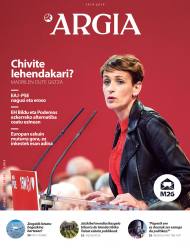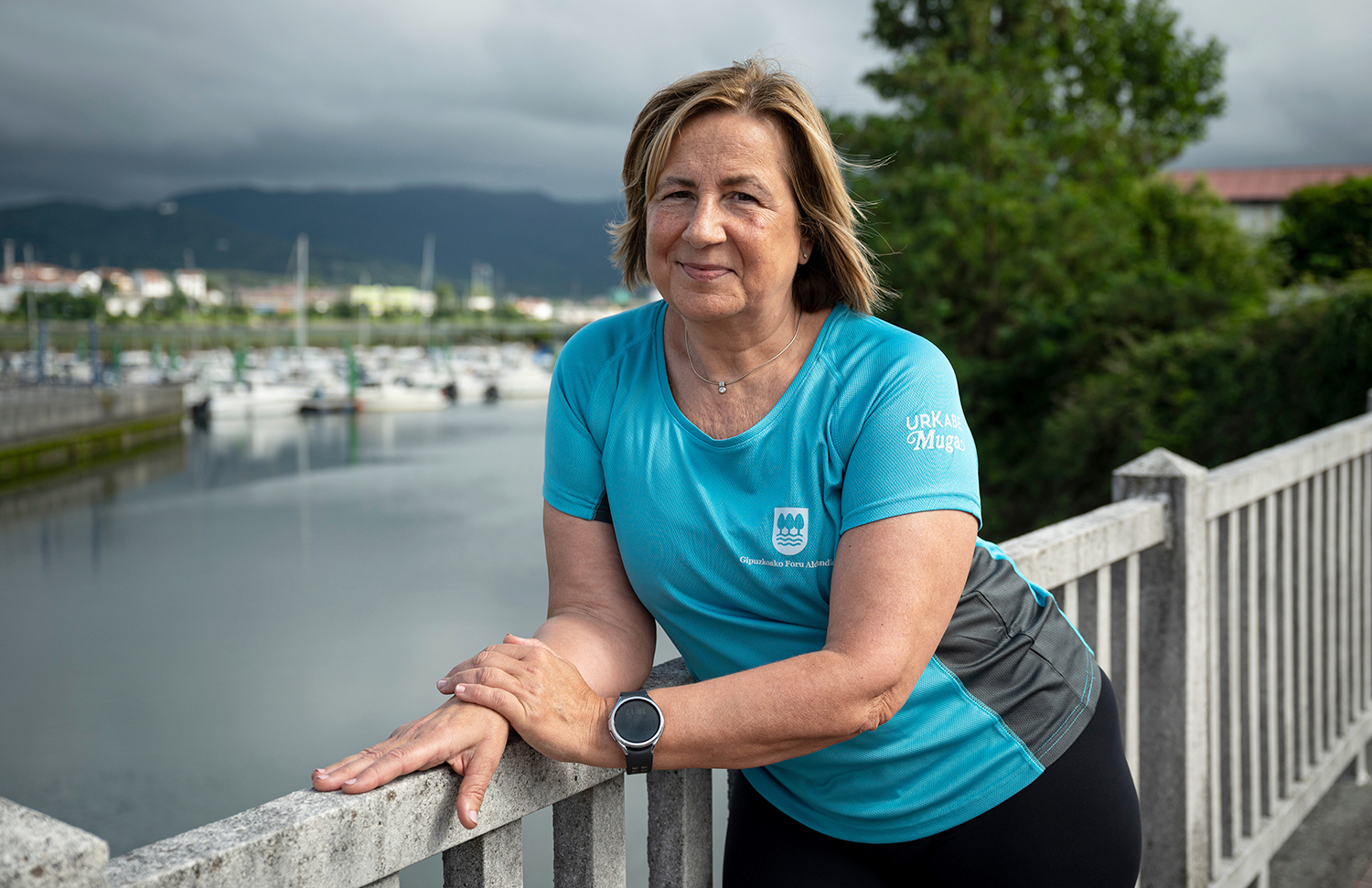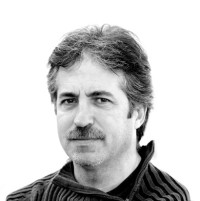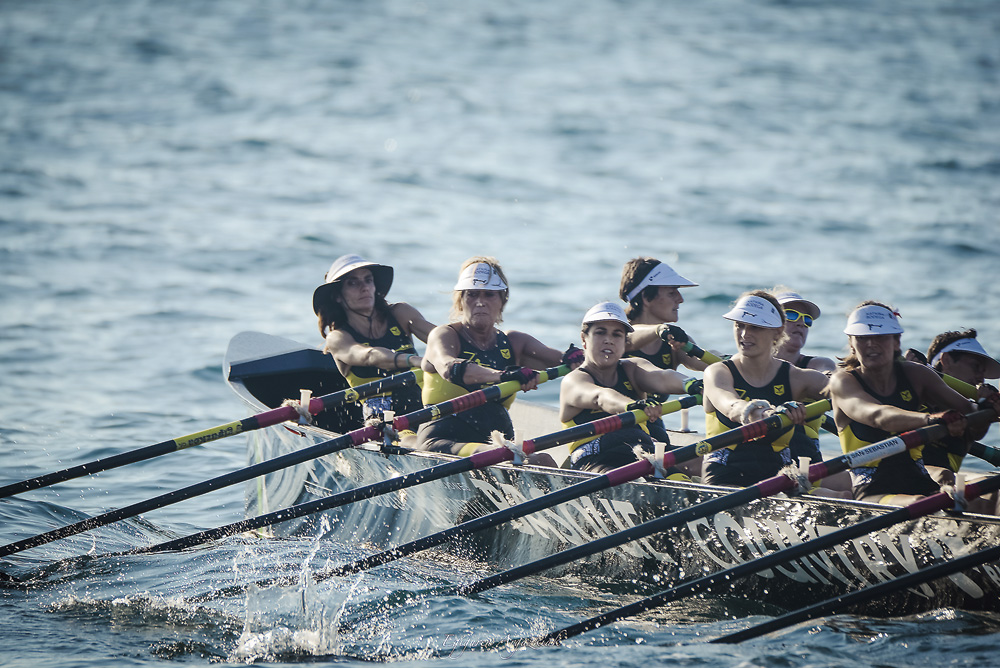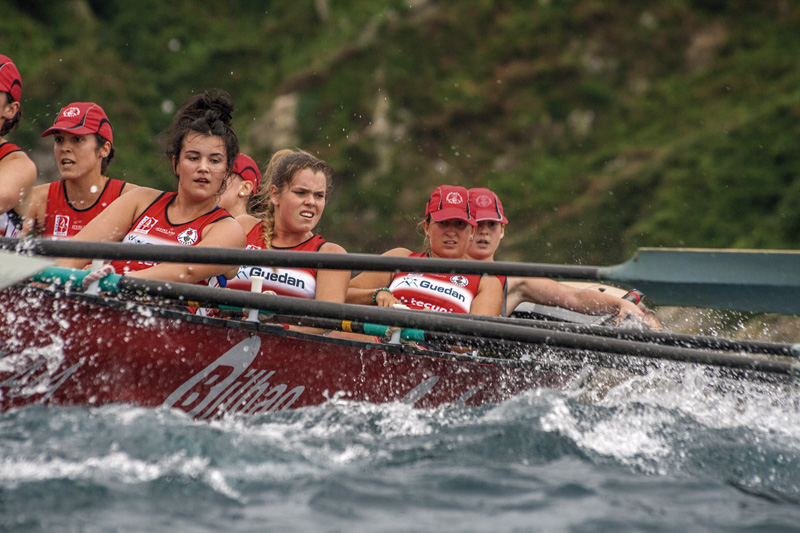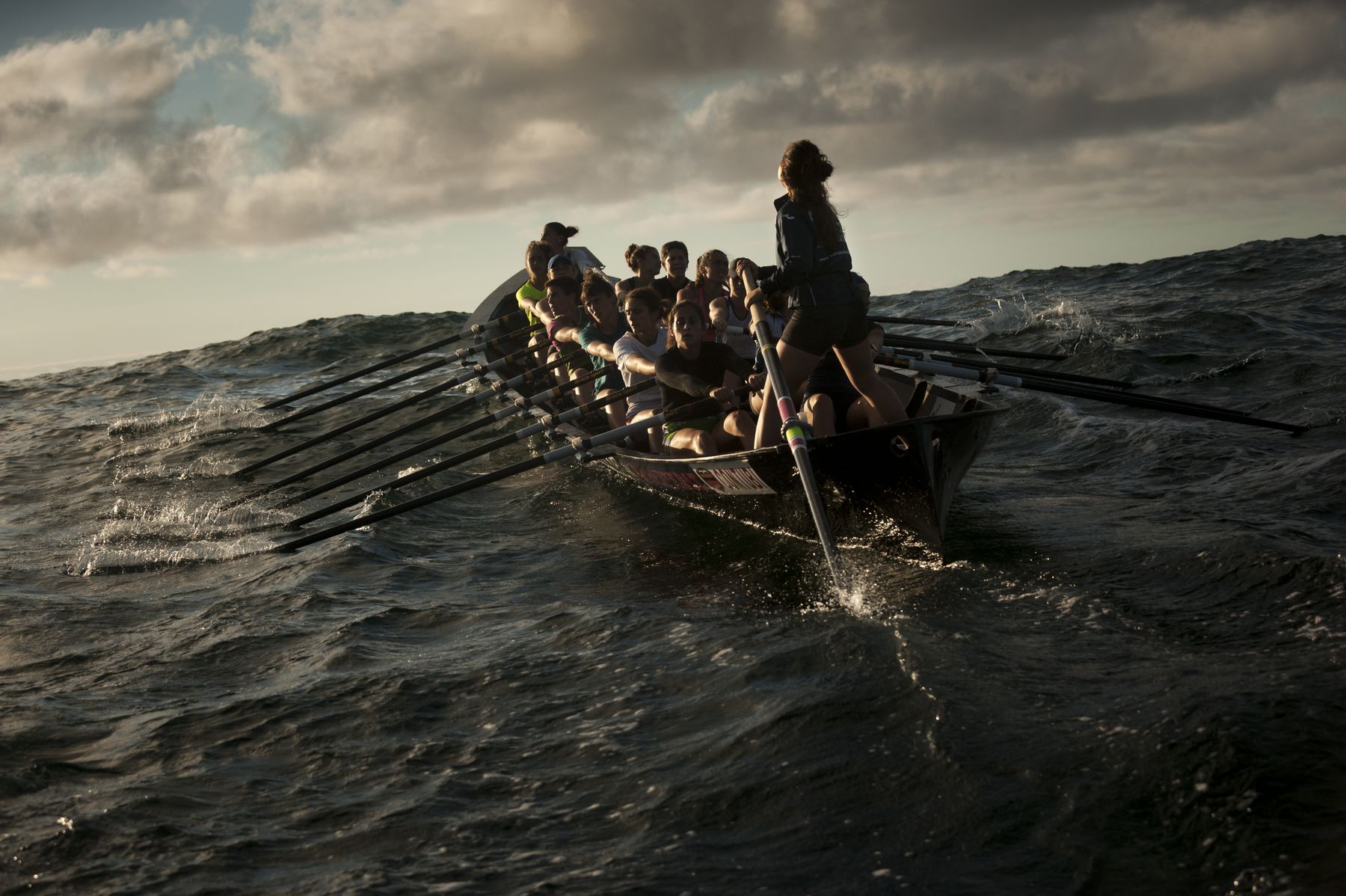"I don't raise flags, and yet I admire those who are rowing."
- They say that in Pasai Donibane, the person learns to paddle before swimming. Specifically, Batelerak made an exhibition in September last year: He won the La Concha flag for the fifth time in a row. After winning everything, the trainera was empty: in the fall the participants announced that they could no longer and that they had no choice but to leave the club. Ane Arbilwaukee is from Donibane and has been part of the rowing team that has made history in the last three seasons. We stayed with him in the port of San Sebastian: there is life beyond the line.
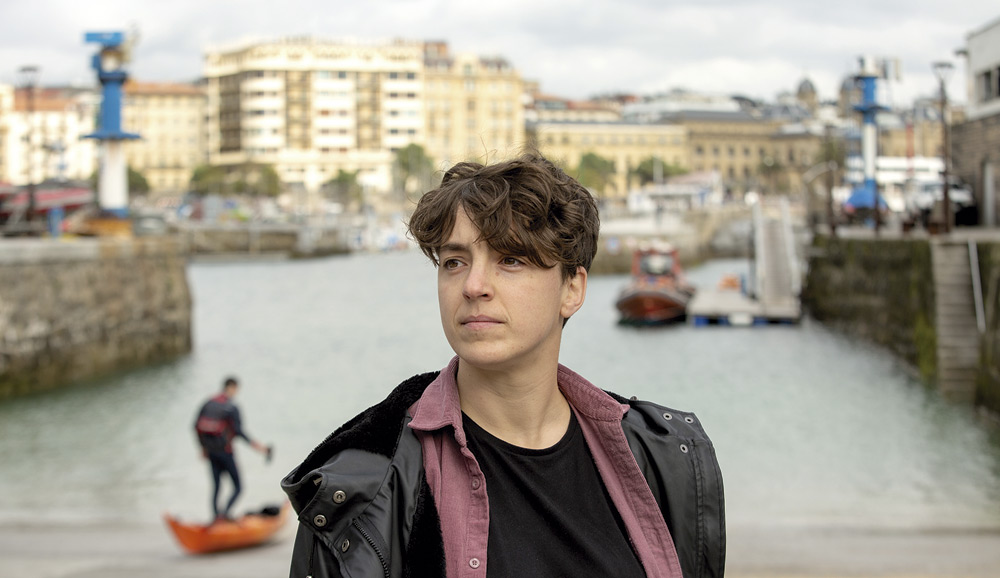
Arnas fisioterapian aditua eta Biomedikuntzan doktorea. Irakaslea da Deustuko Unibertsitatean 2015etik. Eskolak emateaz gain, ikerketa lanak egiten ditu jarduera eta ariketa fisikoaren, biriketako gaitzen eta entrenamenduaren inguruan. Arraunean aritu da Batelerak ontzian azken hiru urteetan.
When did you start to row?
I started as a pattern, when I was 12, until I was 14. Then I left it, because I was the only girl, and I came back 16 years old with a crew friend. But I went to study in Barcelona, where I spent eleven years. Remé, in the mobile bank mode, for three years, but I had a big knee injury, and I had to leave her when I was at the top. When I came back here, when I was about to finish the thesis, I went to the rowing club before I went home.
So what does rowing have?
It's hard to explain. It’s a very hard sport: you lose all the summers, you lose all the holidays, you don’t have time for social life… But when you meet people who are willing to do so, there is something, a strong adhesion, that unites you both to the commitment and the feeling of belonging and the passion to work all with the same goal. That's what it has.
Membership?
It is a team sport, but with great individual responsibility. Your responsibility influences and weighs on others: if you haven't trained enough, you can't help the team. Football, for example, is played in teams, but one against the other; in rowing are fourteen people, with the same objective, making the same gesture at all times and with the same level of effort. That is their particularity.
In 2009 you made your first Concha, but in 2016 you won your first flag, with San Juan. How do you remember it?
I don't remember [laughter]. The explosion was so big that I didn't handle it well. I don't have images, I've forgotten them. The second flag was amazing, and the third one was much nicer, because the experience gives you a better management of your emotions.

So let's talk about the second. You had a very bad sea.
More than a victory was a kind of ecstasy. It wasn’t the rowing, that was something else: from the fear of joy... The fact that we lived was celebrated by many, before winning.
Did you have fear?
Yes, but enjoy it as well. We came the day before, the Saturday, and we went out to the sea. On Saturday there was also a very bad sea, and the sounds we had interiorized, the frequency of the waves, the height, the force -- that never lived. By Sunday we already knew more or less what was going to be, and we did not have that shock, but we did have the other teams, because we spent all Saturday in the morning training to assimilate and manage the feeling of shock bilatzen.Uste, I have to be decisive to win.
On Sunday, we left one by one, followed by a rescue boat. That was the situation. I think it wasn't a good situation to row, but we did.
How did it decide yes?
It is a private regatta, owned by the City Council of the capital of Gipuzkoa. I don’t know if they had a specific criterion to participate, but with the tight schedule… The league ends on Sunday, and the Galicians go to Galicia and the people go on holiday… So what, delay? Until Tuesday? Our boss wouldn’t be, another four from another team wouldn’t be… Some coaches said yes, others didn’t… There were lots of tensions. We had worse waves than the boys, bigger and stronger, got a bit down on their shift and it was a little easier. It has to be said that ours was not very secure. The Donostia Arraun Lagunak team marched against the rocks. Fortunately, the maneuver was immediate, but the 45 kilogram pattern cannot control the 200 kilogram boat and the weight of another 750 kilograms with waves between 5 and 6 meters. We had a very strong team, with a lot of experience, and that day we thank him very much.
"I no longer attach such importance to the rowing, but it is true that San Juan is given a great deal of importance"
Last year was totally different, didn't it?
The last flag was Christ's. We went out with the intention of making things very clear and then we made a big difference to the second: we took 25 seconds to row, and by then we took 2 seconds to the second. It's awesome. We got to the dungeon with a lot of rent, and along the lap we did a kind of stop… and it was a treat.
They immediately warned what they were experiencing: La quinta Concha de San Juan, below.
Yes, what we were doing, where we were, with whom ... Few will live it. La Concha is always a great competition, but that gave us the opportunity to paddle and finish these kinds of sections with peace of mind, and we will remember the experience forever.
After two months of winning everything, trainera Batelerak announced, first in an interview of El Diario Vasco and later through a statement, that they would leave the club.
For us it was very hard, both the situation and the need to denounce the situation, but it was harder to pass everything we had. We didn't know how to get people right or explain it right. People didn't understand us well.
Why?
We learned that if someone does an interview, yes or yes, you have to read it before you publish it, you can avoid a lot of problems. Journalism has some limitations in the transmission of words, and the subject was not easy. There are ways of saying truths, and they can be medium or whole, and those that seem like lies, after all, are not lies if you say them right. We had not invented ourselves. Some of us were left with that feeling, because what we wanted to say was not well reflected.
What did they mean?
We wanted to denounce that the team experienced situations that we shouldn't have lived and that made us so bad, that we left the club. Even if it won everything. We didn't think it was going to be that hard to convey that. It had to be denounced, yes or yes, because silence has no effect: the group that won everything we were going to denounce suffered and felt unable to continue, even asking for forgiveness. That is also serious, repair attempts failed. Therefore, the weight of the pain was too great, after all.
And now what?
Now without a paddle. It's not drama. Many of the teams have received offers to row on other teams, but many of us have said no because we end up being very psychologically burned, and some with slightly more serious consequences. In short, we have stopped practicing sport for reasons that are not in our hands. We have stopped competing for winning and in return we receive firewood for denouncing or for denouncing. We make self-criticism and we know that we are not right, especially in the people, in how we express things, but it is clear that we had to do so, because the nineteen of us have gone and have not returned.

Has the situation improved?
I no longer attach such importance to the rowing, but it is true that San Juan is given a great deal of importance, and the club is continuing, because it has to go on. The girls in the small category are getting very good results, it's lucky. There's a caste from San Juan, and they're the ones who are showing this right now, chapeau. The fact is that it will take many years to reach the highest level we reach. It is now up to the seniors and the youth to give the club more strength. I wish you the best, and I'm glad you win, of course! I would like them not to suffer what we suffer.
Women rowing. It's a broad subject, but what would you mention?
There is a great debate. You mix a lot of values. We have high-level women, who prioritize sport and performance. They're also beginners, they look for experiences, the team. There are also people involved who are trying to train more seriously about their performance.
We are at the beginning. Women's trainees have been officially working for 15 years. It has been developing very progressively, first by selections, then by clubs… Now there are many clubs, there are two leagues. The rowers who have competed from the outset are very clear that it is a hard sport, and that, as far as performance is concerned, seriousness is needed. The rowers who are winning are very clear about what needs to be done to win. What happens is that the others may have been doing more time or lack a special passion to win, as is normal.
And then?
So you need instead of 15 teams, 50, like men, and as many leagues as you need. After all, it is about the number of groups and the natural quality it provides. There is no more. And the years, and the people reeling, training hard, the high-level population, the other newly started, that is, filling the natural cycles.
The material issue is also there.
Women usually take men's surpluses: not the best trainee. I don't think any club has bought a trainera especially for girls. It is normal, it has just begun and the rowing is very expensive. So, the packaging is made for children. The boat will have 70 kilos and the female trainee will have 63. We have a very different constitution, we are lower in themselves. We will never achieve the times of men, not only for lack of strength, but for disadvantage, because our body does not adapt to the boat as boys. That's not how much weight it is to move our bodies. We'll always walk underneath the kids, it's clear. But there is a debate about the suitability of traineras to the weights and conditions of women. It's very easy: in handball women have smaller balls, why not paddle?
How is life without sport going?
Much better than I thought. I came a little stressed from Barcelona, with the thesis about to finish and, in addition, leaving Barcelona after eleven years is not easy. So, the rowing helped me socialize and feel useful here. In these three years I have been stuck there, not being very much with my usual friends, but leaving the rowing and not bad, listen…
There's life even outside the paddle.
Yeah, and it's wonderful. Now I have another point of view.
The season begins… Do you feel the need to come back?
No.
It asks a lot, isn't it?
Yes, it takes a lot off. You have to give it a lot. The truth is, I've been very lucky. I appreciate a lot having had the opportunity to practice rowing in such a short time, on the best team. It's not unusual, I feel privileged, because I found a great team and that team led me to live all of that. It was certainly an effort. My real admiration is for others, for whom no flag has been raised for years and they are still there. I think it's kind of like taking out the txapela. They are the ones that need to be taken care of well, the ones that need to be maintained. For those prosperity will go and bring other generations.
Did the thesis end?
Yes, yes. 20 December 2016. It's over. The process was quite long. I was in a pretty powerful research center, with a high-level director, just starting the crisis: no money, fewer people to do the same job -- the process was very hard. But we have achieved very good results.
What was it about?
Physical activity and training in patients with lung diseases.
What did they conclude?
What physical activity is offered to sick people? They have special programs in hospitals, such as physiotherapists, exercise tests, prepare and supervise training… We have offered them a very simple street training methodology. They would use parks and pedestrian zones to improve their physical activity. We have made a very small but very specific intervention, and we have been the first to be able to maintain the efficiency of a year.
And how did you start doing it?
Physiotherapy is mainly associated with sports injuries, traumatology and neurological problems resulting from traffic accidents. Respiratory physiotherapy is a more unknown area. We work with patients with pulmonary and cardiac diseases.
Now you teach at Deusto University.
Yes, I was also teaching in Barcelona. The truth is, I started very soon. I started teaching from one day to the next, 23 years old, and since then I've walked. I'm also doing research. The truth is, I'm happy.
Do you have any patients here?
Since I've come I haven't been with the patients. Sometimes, if I've done something special, I've done it, but otherwise not. I'd like, I'm doing very well with the patients. It's a very nice world. But here as a respiratory physiotherapist you have difficulty developing something, in Osakidetza there is no department…
Would you like?
When I was rowing it was impossible, and now, without rowing, I'd rather take a little time. In the future it is possible, but to know what, I have so many things to do.

At first, by the time it was rainy, Miguel Strogoff thought it was great. They were installed on the roof of the sports club to spend the mornings in the new and colorful machines. For the second week, someone told him that the walking machine, a stone mill that could not be... [+]
40 urte betetzekotan ziren eta modu berezian ospatu nahi zuten urtebetetzea. Bazkaria? Asteburu pasa ez dakit non? Ez, beste zerbait izan behar zuen, harrotasunez gogoratuko zutena, barrukoa, beharbada betiko amets bete gabea.
Aurtengo Donostiako Estropaden bigarren igandean, emakumeak erlojuz kontra bota zituzten uretara itsasoaren baldintza bortitzek “behartuta”. Gizonezkoak, berriz, tradizio sakratuari eutsiz, launaka bi txandatan.









